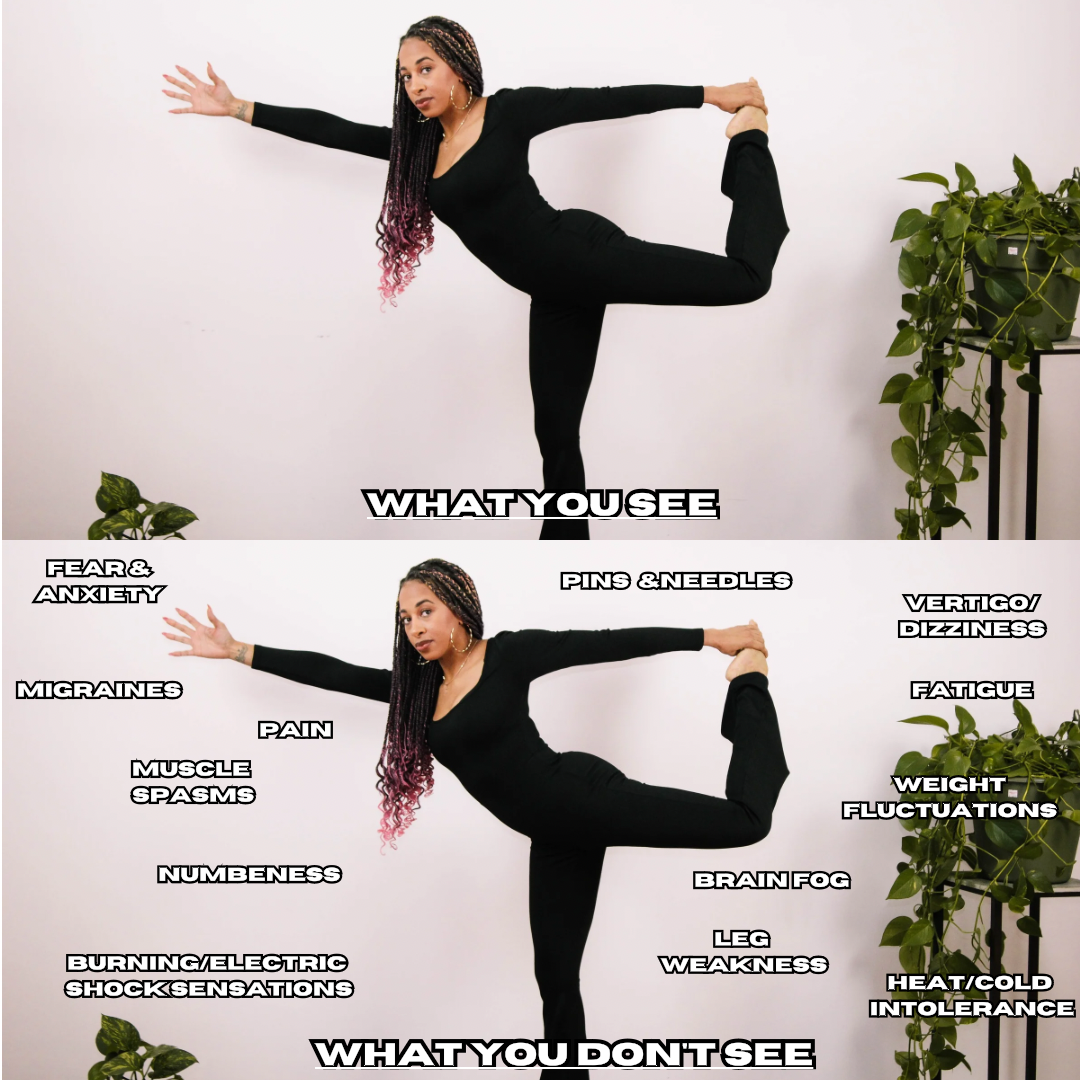HOLDING SPACE FOR SHAME ON AND OFF THE MAT
When you’re living with a chronic illness like MS, shame can quietly settle into your everyday life. Sometimes it’s loud, sometimes it’s subtle, but it’s often there lurking in our minds. As a yoga teacher, I’ve come to see that most people associate yoga with the physical aspects such as flexibility, strength and movement. What many people don’t realize is that yoga can also be a deeply emotional space that allows us to feel.
When we slow down enough to breathe and move with intention we signal to our bodies and nervous systems that we feel safe. What rises to the surface isn’t just tight muscles. Sometimes it’s the emotions we’ve tucked away and that can include shame.
Full transparency — there are days when I feel like I’m pretending. I often feel like I have to show up as “the teacher” even when my body is tired, my symptoms are flaring, or I’m not sure how much I can give. There have been moments when I’ve downplayed my MS experience just to maintain the image of who I was before diagnosis. I’ve caught myself hiding parts of my reality because I didn’t want to be seen differently. That’s shame, too.
Shame tells us we’re not enough as we are. It whispers that we need to perform wellness and rest is failure. It tells us that our value is tied to how much we can push through and be strong for the masses. Shame can make us believe we have to hide the ways our bodies have changed. It can tell us that resting is a sign of weakness or that needing help is something to be embarrassed about. Yoga invites us to gently challenge those beliefs.
One way we begin to loosen shame’s grip is by building practices that affirm our worth and need for tenderness.That could look like lying in savasana the entire time — not because you’ve “given up,” but because you’re choosing rest on your terms. It might look like offering yourself a self-hug in meditation, taking deep breaths with your hands on your heart. Maybe it looks like gently massaging your arms, shoulders and legs with care. It can also look like using support with yoga props like chairs, blocks, pillows, and straps to make the practice more accessible and aligned with how your body feels today.
These aren’t small gestures. They’re acts of resistance. They remind us that we don’t have to earn softness. We can move at the pace of trust, and our bodies deserve presence, not punishment. As Black women with MS, we especially need this reminder.
You don’t have to leave your shame at the door to step on the mat. Bring it with you, and meet it with compassion. Over time, that gentle presence becomes a form of healing — on and off the mat. You are not broken. You are becoming. Your body holds wisdom, your breath is your guide, and you are deserving of every ounce of grace. Whether you’re moving, resting, crying, or simply breathing, you’re still practicing. You’re still worthy. And you are never alone.

